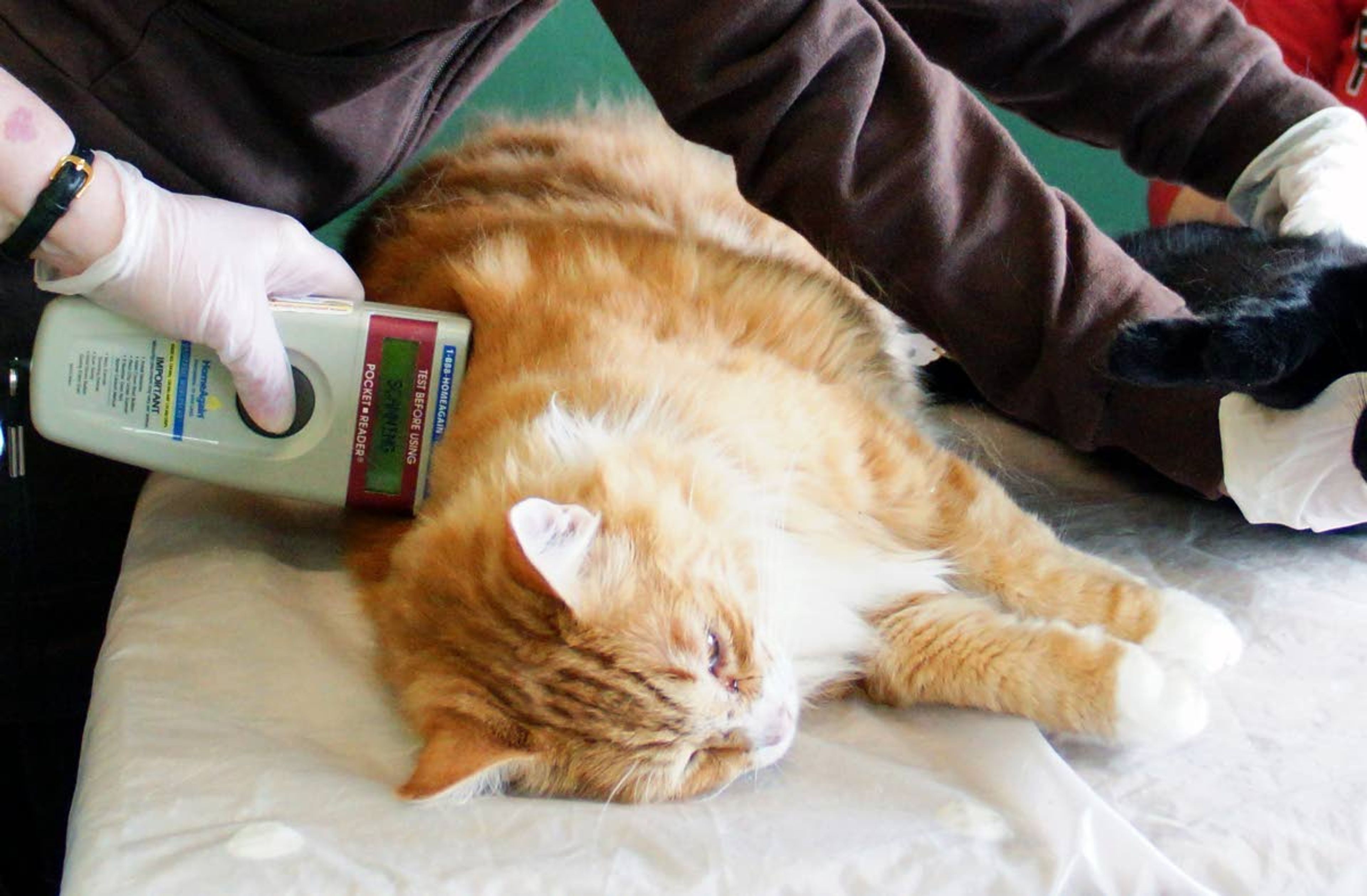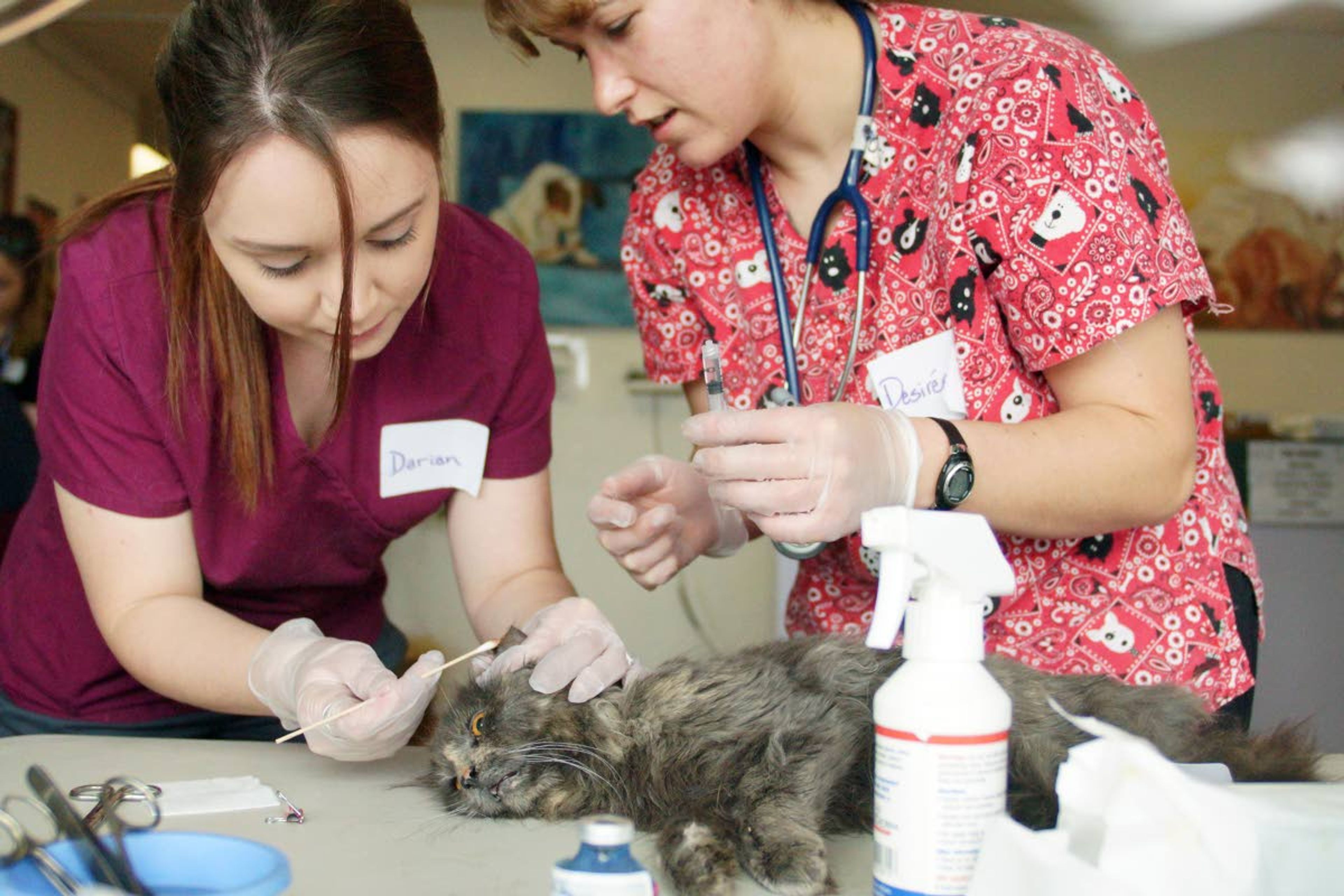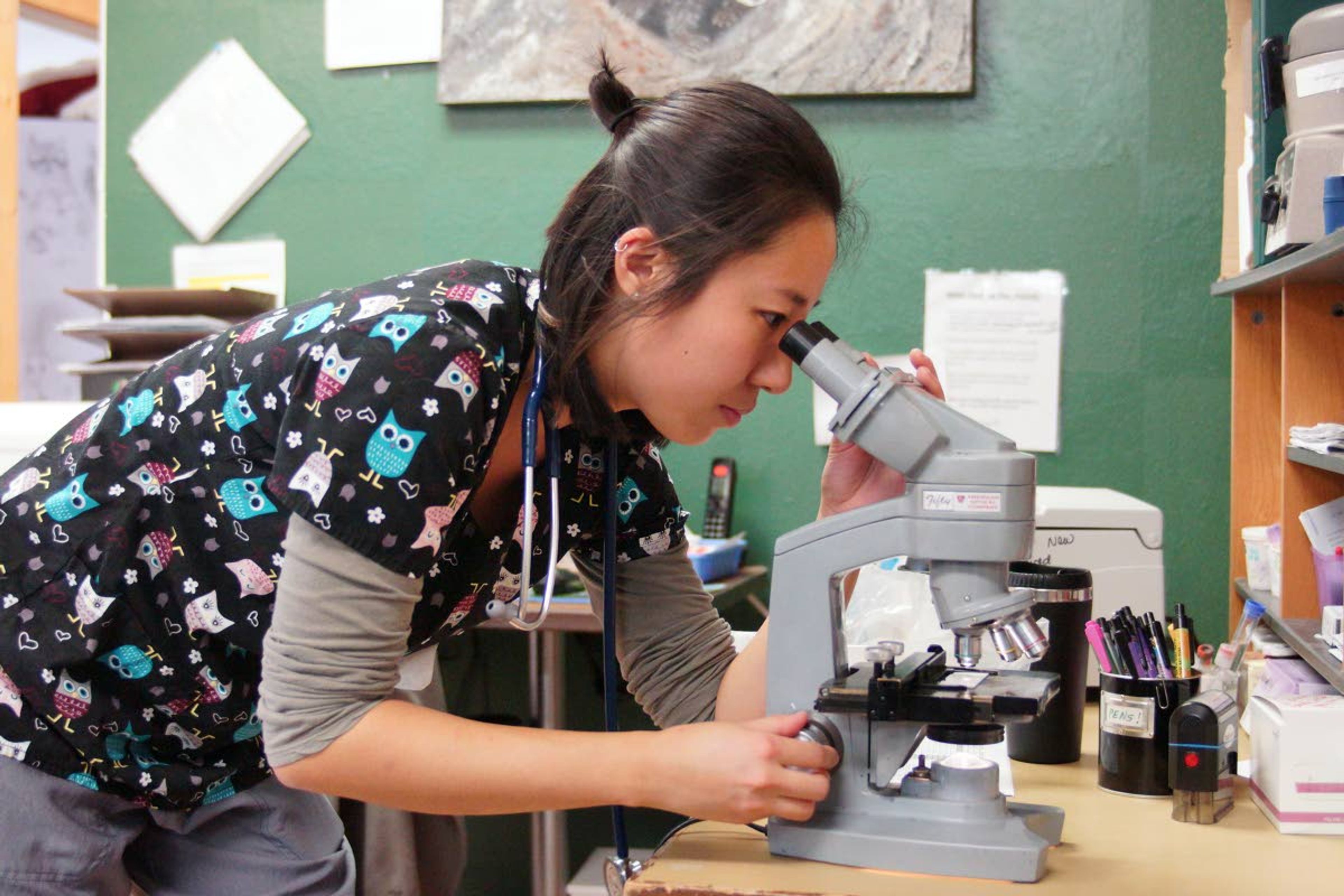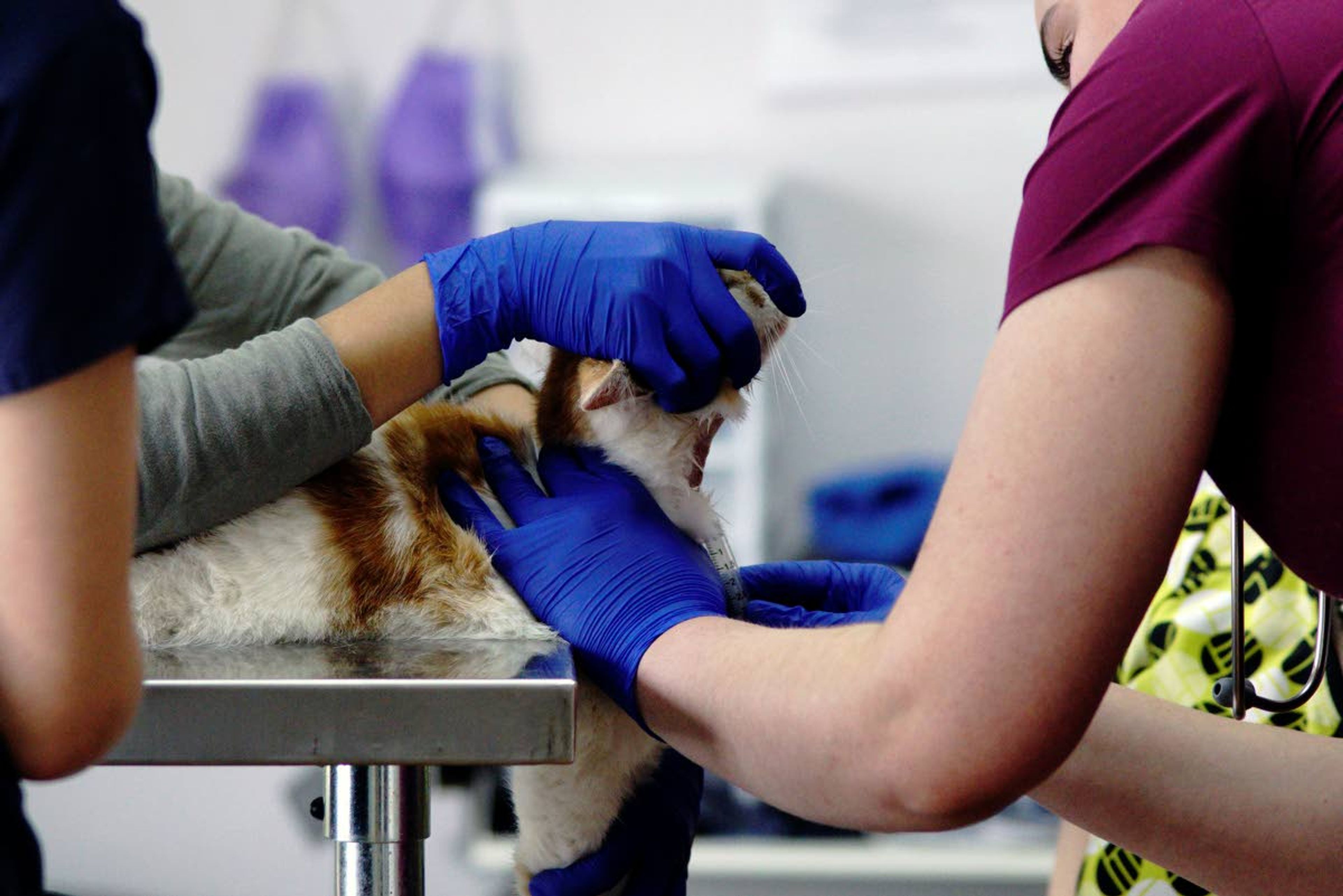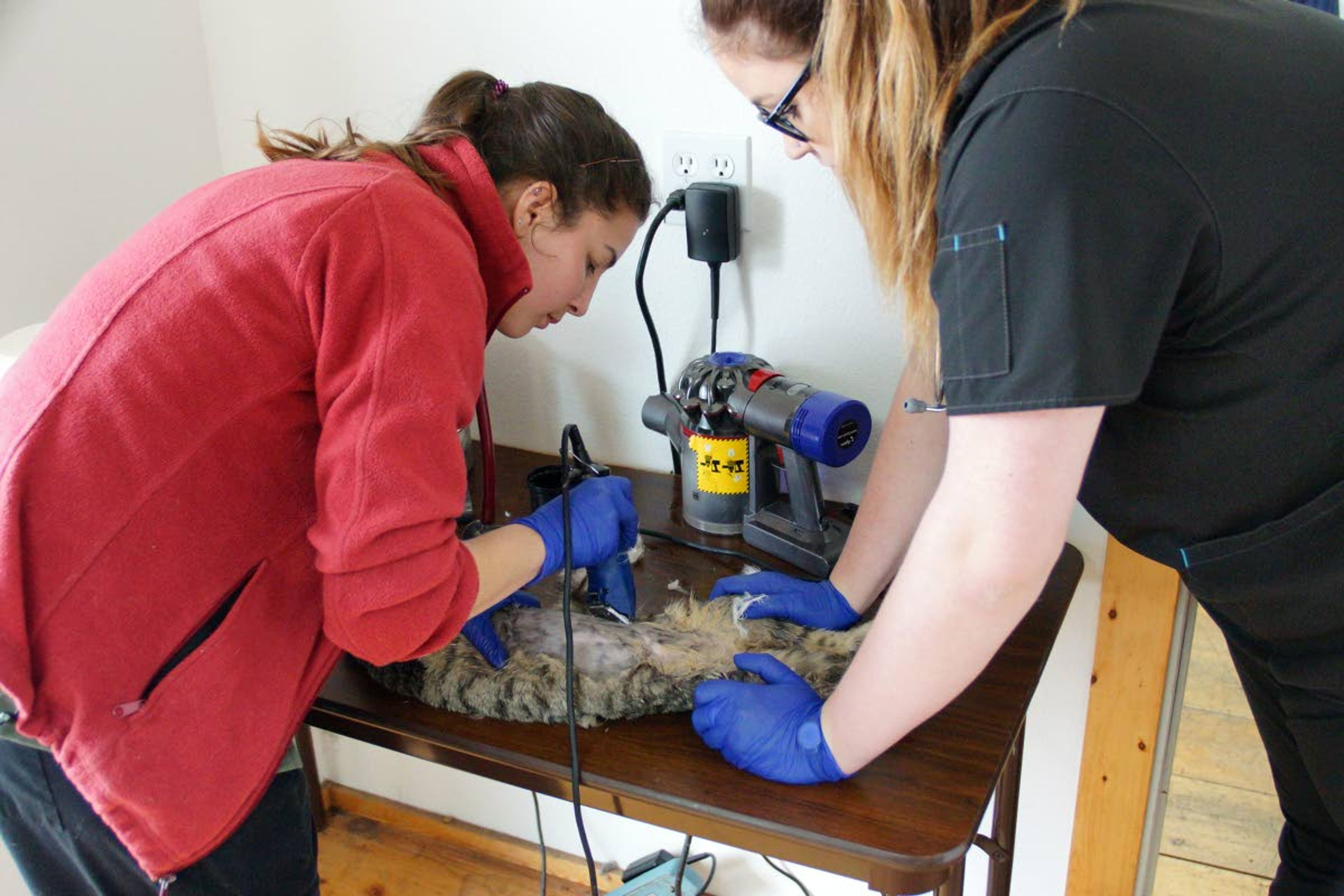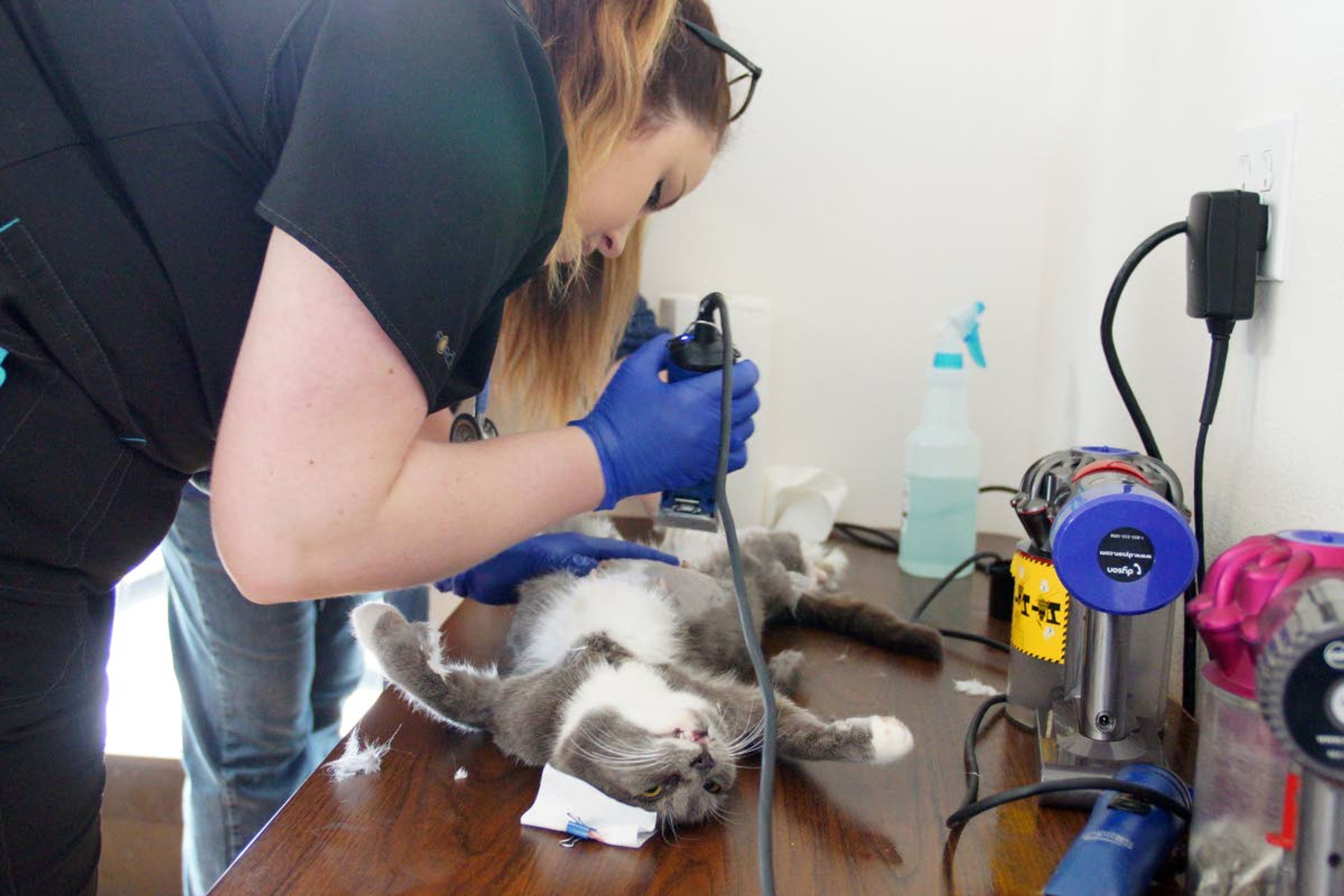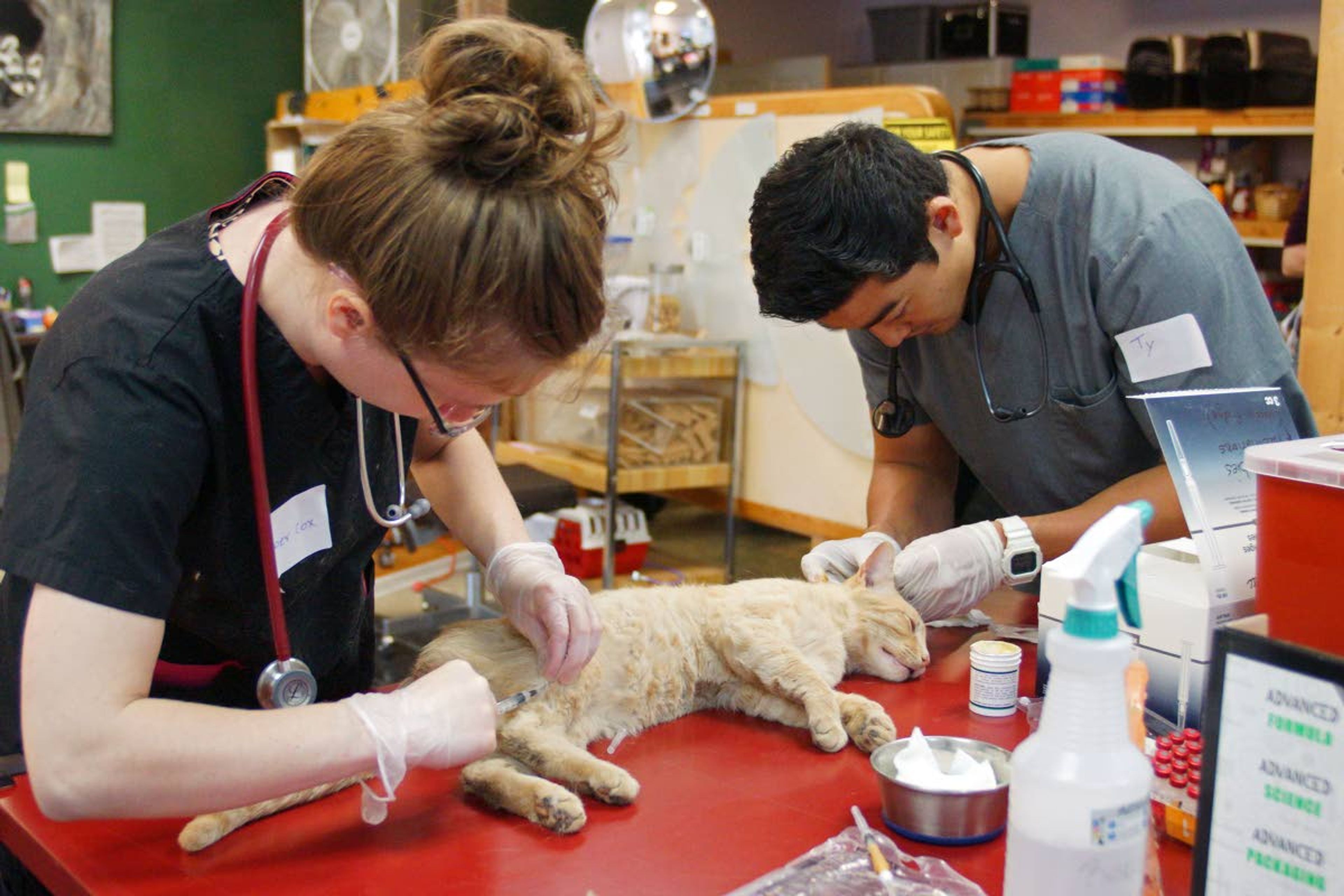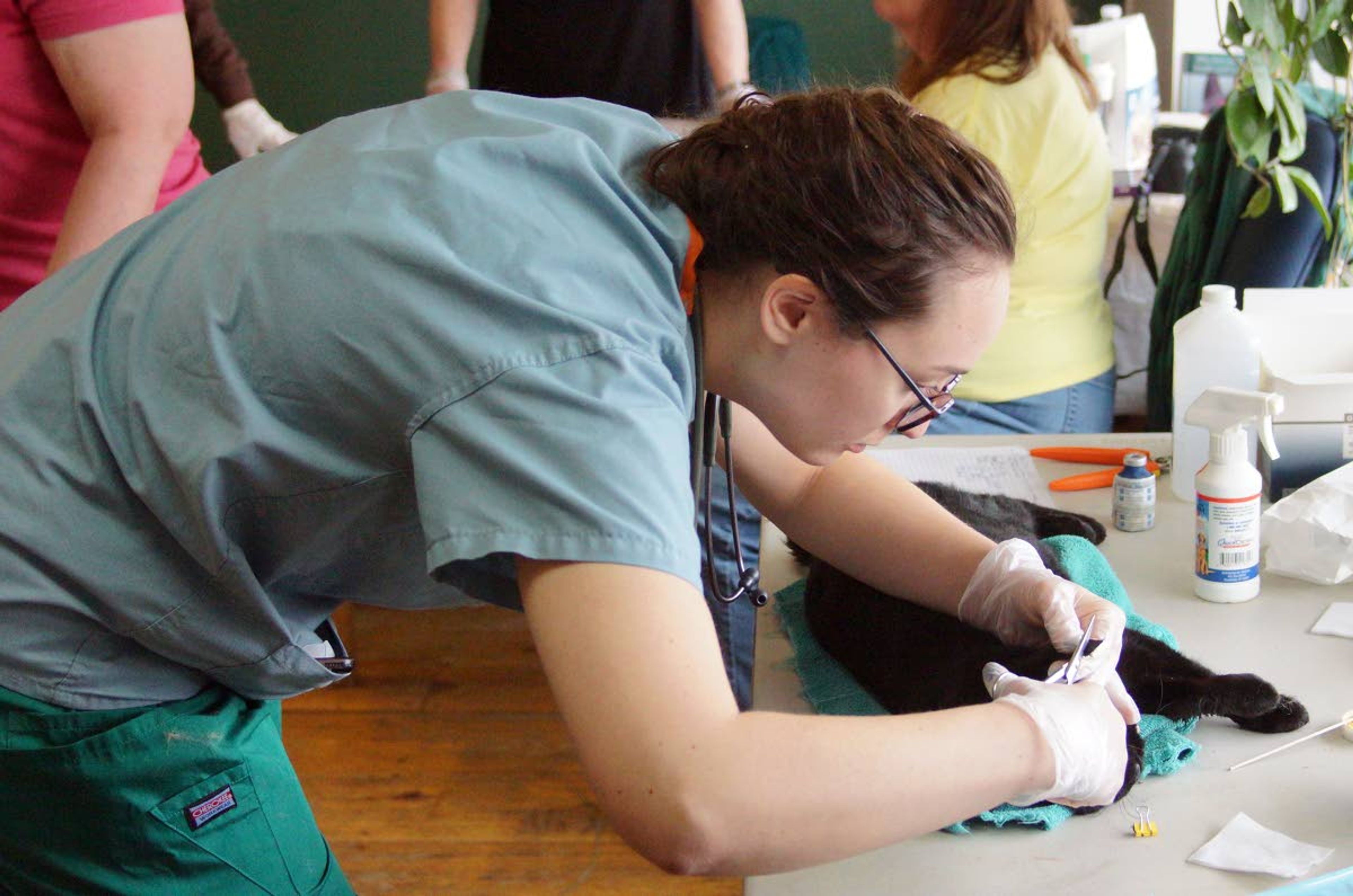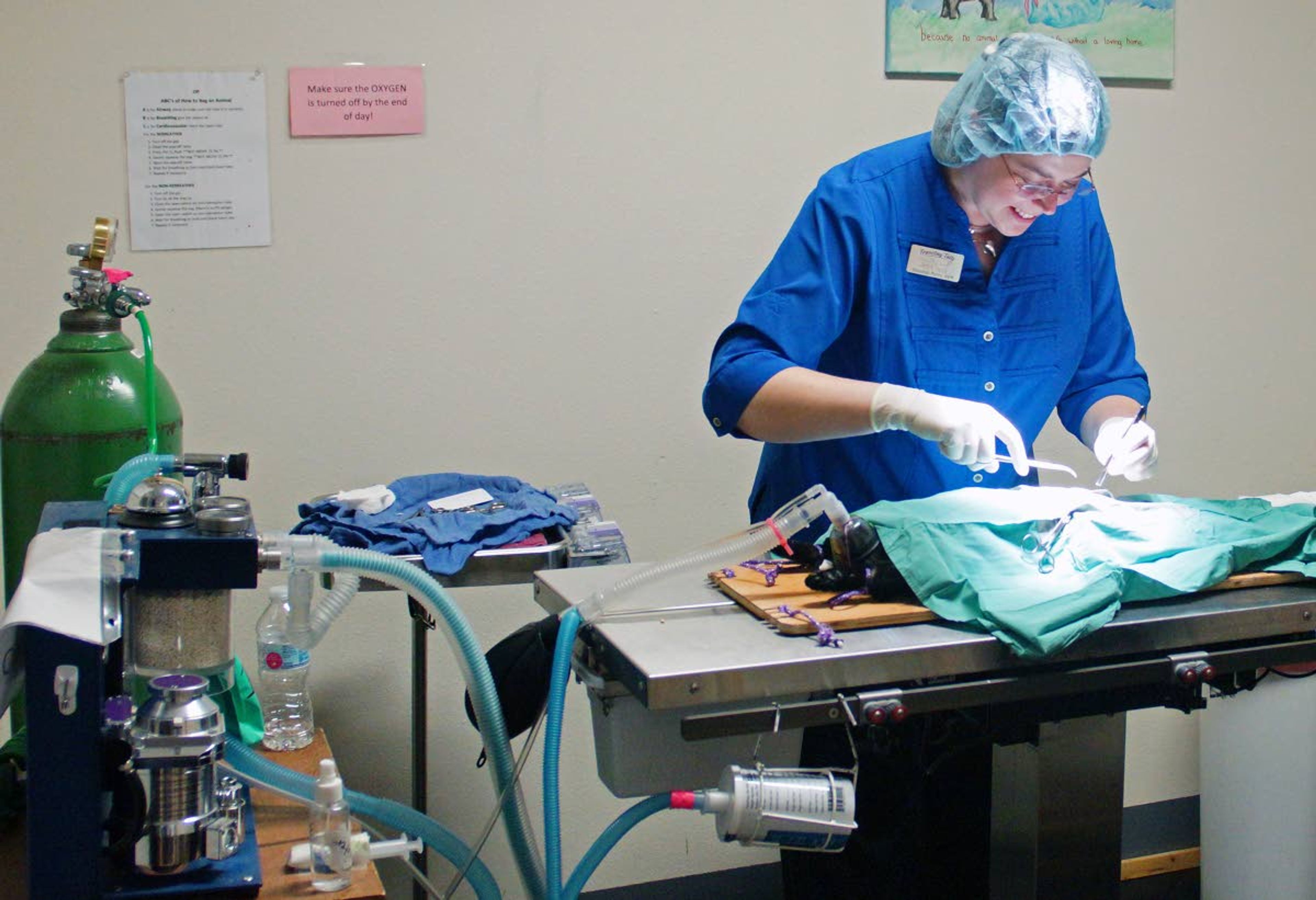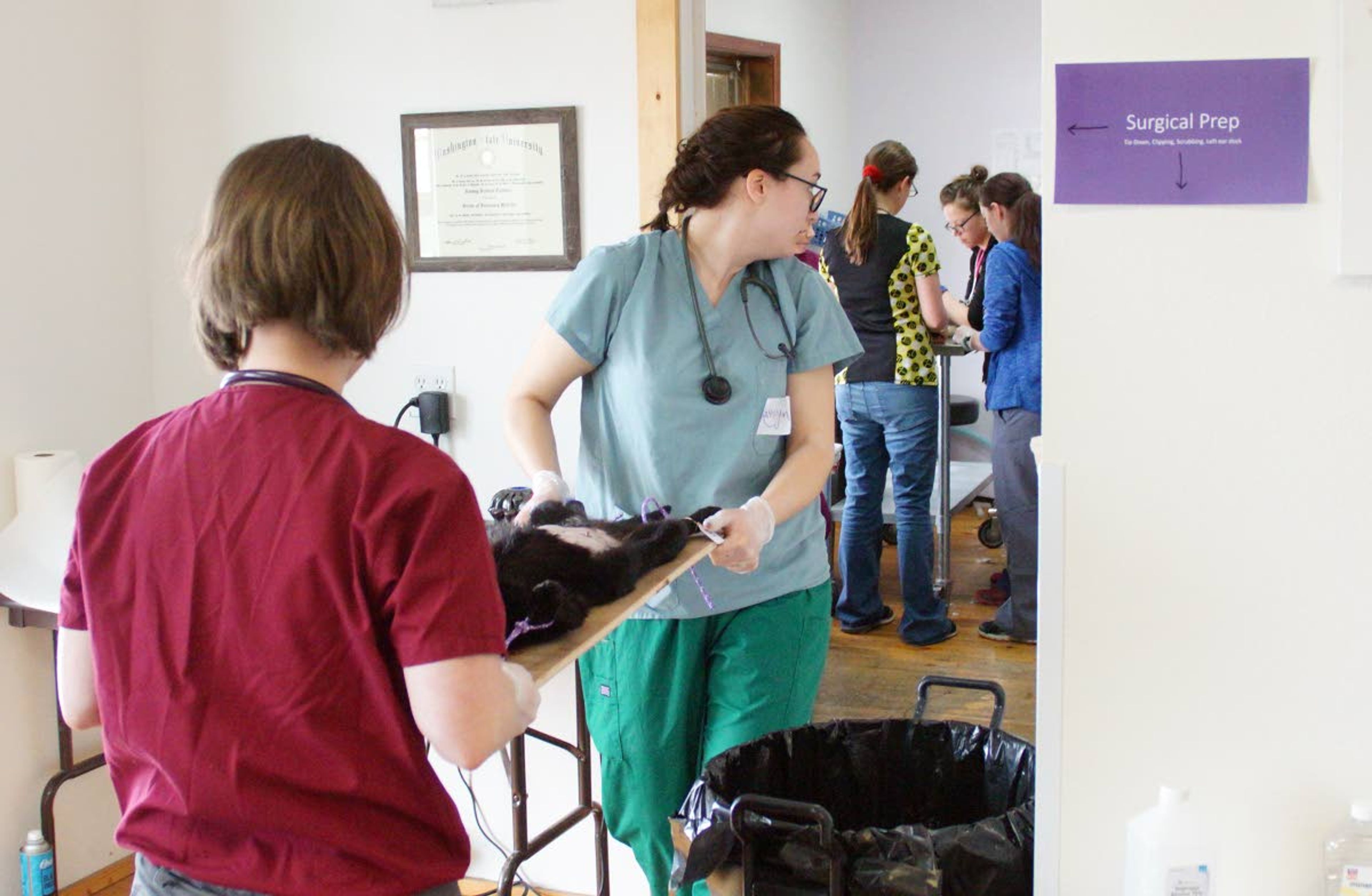Steps made to control feral cats
Trapped felines from around Palouse brought to Moscow vet clinic to be fixed, immunized
Washington State University and a local organization packed a Moscow veterinary clinic for an entire day to tackle one of the Palouse’s recurring problems: feral cats.
Animal House Ferals teamed up with WSU College of Veterinary Medicine students Sunday to trap, spay, neuter and immunize cats from around the region. The cats were immunized for rabies and feline leukemia.
The cats were brought to Affordable Veterinary Care & Spay Neuter Clinic in Moscow for the event, which was funded with grant money from PetSmart Charities and the Lauren McCluskey Foundation.
A team of people spent the past several days trapping feral cats in Latah and Whitman counties at trailer parks, near apartments, in barns and other spots where felines commonly roam free.
Peg Hamlett, executive director of Animal House Ferals, said she trapped cats roaming around the Identity Moscow apartments on Main Street.
As dozens of cats awaited their procedures in crates early Sunday morning, Hamlett said more than 100 cats were expected to be brought to the clinic that day.
Rooms for induction, surgery, storage and recovery were all buzzing with activity, as anesthetized cats were carried to each station. Hamlett said vets sported welding gloves to prevent injuries from some of the more aggressive felines.
In addition to controlling populations, Hamlett said spaying and neutering cats also prevents cats from fighting, as male cats act aggressively when a female cat is in heat.
The effect of Sunday’s event will not be immediately seen, as the cats were to be returned and freed where they were trapped.
While this may seem counterintuitive, Hamlett said simply removing a colony of cats from a location would have created a “vacuum” for more feral cats to come in and create a new colony.
By immunizing and fixing the cats, feral numbers are more likely to be controlled, as well as diseases.
While many cats have been born feral, these colonies are often comprised of cats which were abandoned, she said.
“Most of these were pets at some point,” she said.
The university students are among the biggest culprits, when they leave their cats behind after departing from Moscow and Pullman for the summer, she said.
The cats were put back into their respective cages, which were tagged so they would be identified and brought back to where they were living.
Hamlett advised anyone who sees a feral cat colony near them to contact Animal House Ferals for advice. Hamlett said she hopes to make a trap, spay and neuter event an annual occurrence.
Anthony Kuipers can be reached at (208) 883-4640, or by email to akuipers@dnews.com.
